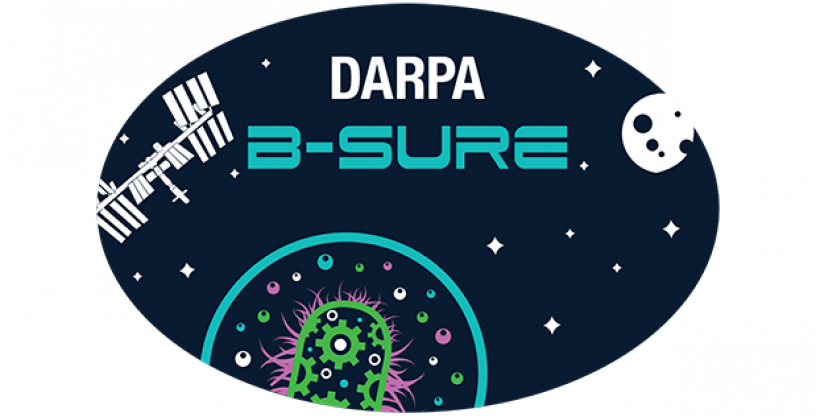Teams aim to provide important insights into potential of biomanufacturing in space
Mar 14, 2023
Three university teams and an industry performer will explore and take initial steps to mitigate risks associated with manufacturing capabilities that rely on biological processes in space. The DARPA Biomanufacturing: Survival, Utility, and Reliability beyond Earth (B-SURE) program aims to address foundational scientific questions to determine how well industrial bio-manufacturing microorganisms perform in space conditions.
The teams selected to help address B-SURE program goals are:
- University of Florida
- University of Texas at Austin
- Washington University in St. Louis
Space Tango
“There is a critical Department of Defense (DoD) need for the continued development and future expansion of orbital manufacturing to enable and ensure supply chain resiliency, sustained technological superiority, and asset security and repair for current and future operations,” stated Dr. Anne Cheever, B-SURE program manager.
This fundamental research program is designed to explore and mitigate risks associated with the concept of biomanufacturing in space and no industrial biomanufacturing will take place as part of B-SURE. Rather, the microbes being investigated will use test molecules as a proxy for their general bioproductivity potential.
As part of the “Low Gravity Track” team, the University of Florida (UF) performers, led by Dr. Amor Menezes, are tasked with gathering data to provide important insights into how common industrially relevant biomanufacturing microorganisms perform in the low gravity conditions of space. They will evaluate the performance of several well-characterized microorganisms by sending them to the International Space Station on NASA’s next commercial resupply mission via SpaceX, scheduled for launch at 8:30 p.m. EDT Tuesday, March 14. UF team member Rhodium Scientific will act as the mission integrator and provide scientific translation of laboratory protocols for spaceflight operations and flight-proven hardware for the execution of the experimentation on orbit. In addition to Rhodium Scientific, the team also includes subcontractors from NASA’s Ames Research Center, University of Delaware, and University of California Berkeley, and will focus on quantifying growth cost of engineering, efficacy of microgravity simulators for production, and identifying the best candidates for future study.
Heading up the “Variable Radiation Track” team is Dr. Hal Alper from the University of Texas at Austin. Supported by teams from the University of Washington, University of Wisconsin-Madison, and Signature Science LLC, this team aims to understand the effects of different radiation levels and species on microbial molecule production, and what methods can be used to mitigate any deleterious effects to ensure high bioproductivity.
The “Alternative Feedstock Track” team, led by Dr. Yinjie Tang at Washington University will work with teams from NASA’s Ames Research Center and North Carolina State University to determine what alternative feedstocks can be consumed by host organisms and at what quantity and purity levels. Additionally, microbial engineering efforts aim to increase the amount of nutrients that the microorganisms can derive from space relevant in-situ resources.
A second "Alternative Feedstock Track" team is led by Dr. Alain Berinstain at Space Tango and supported by Sierra Space. This group will incorporate experimental data from the Washington University team, along with publicly available data, to answer modeling questions about the logistic and economic viability of biomanufacturing for the future space economy in low-Earth orbit.
A government team from NASA's Kennedy Space Center, led by Dr. Luke Roberson, is partnering with the other B-SURE performer teams to provide critical testing and transition opportunities to advance the development of biomanufacturing hardware for space conditions. Teams are also expected to collaborate with ethical, legal, societal implications (ELSI) experts.
Additional details of the program schedule and metrics are available in the broad agency announcement at https://sam.gov/opp/99ed34c6f2a347e0ac260f265952a56c/view.
Editor’s note: Updated May 11, 2023, to reflect the additional performing team, Space Tango, whose contract was finalized after the original posting date of this news. Also includes addition of NASA’s Kennedy Space Center government partner.
# # #
Media with inquiries should contact DARPA Public Affairs at outreach@darpa.mil
Associated images posted on www.darpa.mil and video posted at www.youtube.com/darpatv may be reused according to the terms of the DARPA User Agreement.
Tweet @darpa

